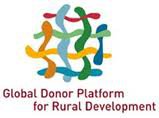Platform Knowledge Piece III – the strategic role of the private sector in agriculture and rural development
The private sector’s role in agricultural value chains in developing countries has changed considerably over the past 25 years due, in part, to the general withdrawal of state involvement. In the context of the ‘rolling back’ of the state, the private sector response to the opportunities which this has created will be assessed. Attempts to stimulate private sector development in the rural sector have taken many forms – from direct support to producers to macro-level policy adjustments such as business deregulation, regional trade liberalisation and standards harmonisation. In addition, the private sector has responded to opportunities in the rural sector independent of donors, with significant development impacts. We will evaluate these different approaches to private sector development and detail the implications for Platform donors.
The study aims to increase the effectiveness with which private sector development initiatives in rural areas are supported. The key questions it will answer are:
- How has the private sector responded to the ‘rolling back’ of direct state involvement in rural areas and what is the explanation for the different responses observed?
- Where donors, governments, NGOs and others have sought to stimulate private sector development, and the private sector has itself been active, what has determined the success of these initiatives? And
- What are the implications of this analysis for the way that Platform members support private sector development in rural areas?
Research will be built along four main components:
- A brief review of the retreat of the state from agriculture will be documented across a range of countries which reflect the diversity of starting points (from virtual command economies to less interventionist states). This will include an assessment of whether, during the liberalisation process, the state has continued to provide sufficient ‘public goods’ functions (such as research and regulations) which are generally required for vibrant private sector activity;
- The private sector response to the opportunities opened up by the liberalisation process, and other emerging opportunities, will be assessed. Where the private sector has developed markets successfully, the pre-conditions for this will be assessed;
- Where a range of multiple market and state failures have provided a barrier enterprise, a range of development actors have sought to stimulate private sector development through a broad range of interventions. We will assess the effectiveness of these interventions to understand their different performance; and
- The implications of these findings for Platform members seeking to stimulate private sector development in rural areas will be detailed.
Staff
-
John Howell
Senior Research Associate (Based in Pretoria)
-
Emily Darko
Research Officer
-
Steve Wiggins
Principal Research Fellow
